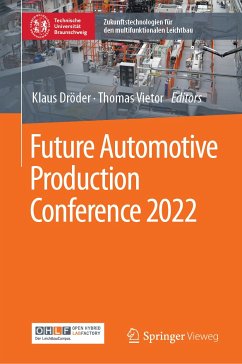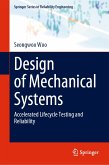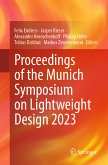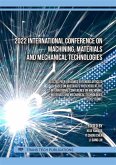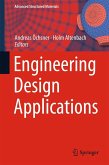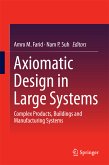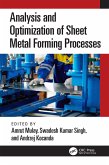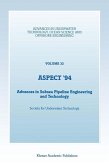The conference focused on hybrid lightweight design, which is characterized by the combination of different materials with the aim of improving properties and reducing weight. In particular, production technologies for hybrid lightweight design were discussed, new evaluation methods for the ecological assessment of hybrid components were presented and future-oriented approaches motivated by nature for the development of components, assemblies and systems were introduced.
Lightweight design is a key technology for the development of sustainable and resource-efficient mobility concepts. Vehicle manufacturers operate in an area of conflict between customer requirements, competition and legislation. Material hybrid structures, which combine the advantages of different materials, have a high potential for reducing weight, while simultaneously expanding component functionality. The future, efficient use of function-integrated hybrid structures in vehicle design requires innovations and constant developments in vehicle and production technology. There is a great demand, especially with regard to new methods and technologies, for "affordable" lightweight construction in large-scale production, taking into account the increasing requirements with regard to variant diversity, safety and quality.
The Editors
Prof. Dr.-Ing. Klaus Dröder is Professor of Manufacturing Technologies and Process Automation, as well as Head of the Institute for Machine Tools and Production Technology (IWF) at the Technische Universtität Braunschweig. He is also a member of the board of the Open Hybrid LabFactory. His research interests include technological and automation issues in current and future process chains, with a focus on the implementation of production strategies that enable the efficient and flexible manufacture offunctionalized products.
Prof. Dr.-Ing. Thomas Vietor is Head of the Institute for Engineering Design (IK) at the Technische Universität Braunschweig as well as a member of the board of the Open Hybrid LabFactory. His research focuses on the integration of product development and production technology, the integration of product development and industrial design, and the use and further improvement of CAx processes in product development.
Dieser Download kann aus rechtlichen Gründen nur mit Rechnungsadresse in A, B, BG, CY, CZ, D, DK, EW, E, FIN, F, GR, HR, H, IRL, I, LT, L, LR, M, NL, PL, P, R, S, SLO, SK ausgeliefert werden.

